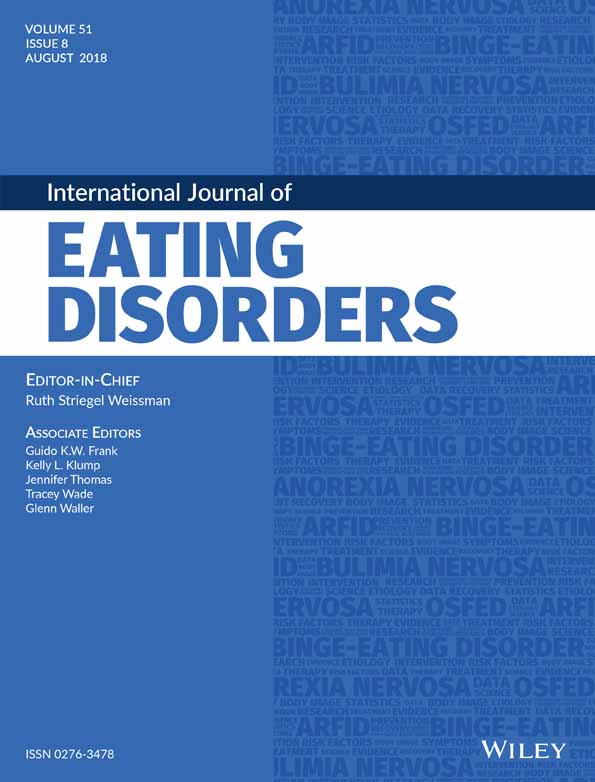A randomized controlled trial of the compuLsive Exercise Activity TheraPy (LEAP): A new approach to compulsive exercise in anorexia nervosa
Funding information: National Health and Medical Research Council, Grant/Award Number: 634922
Abstract
Objective
To compare the efficacy of the compuLsive Exercise Activity theraPy (LEAP) programme integrated with manualized cognitive behavioral therapy for anorexia nervosa (CBT-AN) compared to CBT-AN alone.
Method
Seventy-eight adults were randomized to CBT-AN, delivered with or without eight embedded sessions of LEAP, for a total of 34 individual outpatient sessions. Participants were assessed at baseline, the end of the first phase of CBT-AN (which included LEAP), mid-therapy, end of therapy, and at 3 and 6 months follow-up. Linear mixed effects modelling was used for comparing trajectories over time by group in primary outcomes of pathological exercise cognitions and secondary outcomes of exercise frequency, BMI, eating disorder (ED) symptoms, AN stage of change, anxiety/depression, and health related quality of life.
Results
There were significant improvements over time in all outcomes. There were no significant differences between treatment groups in primary outcome measures. Fidelity and end-of-treatment participant satisfaction were satisfactory across both conditions.
Discussion
CBT-AN and LEAP added to CBT-AN resulted in improved attitudes and beliefs toward exercise and general improvements in BMI and ED psychopathology in people with AN.




